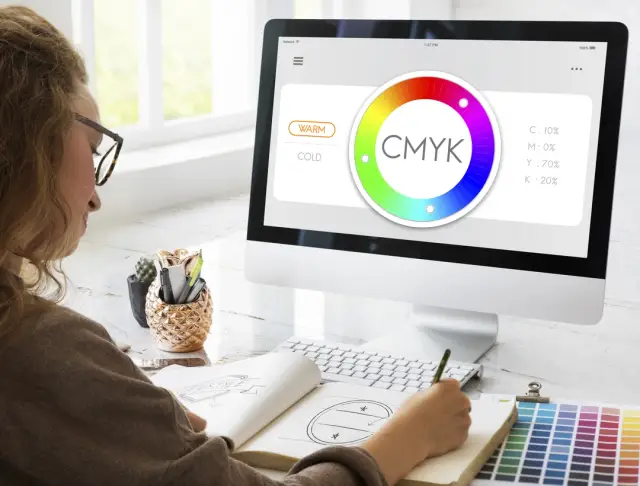How Can DALL-E Simplify Branding for App Developers?
Discover how DALL-E, an AI-based image generation technology, can simplify branding for app developers. Learn the pros, cons, and best practices to leverage DALL-E in the app development process.

What is DALL-E?
DALL-E is a groundbreaking AI-powered image generation technology developed by OpenAI. It can create high-quality images from textual descriptions through a combination of machine learning and advanced natural language understanding. The technology leverages a deep-learning model that generates unique and visually appealing graphical representations based on the provided input text.
Named as a portmanteau of the famous painter Salvador Dalí and the popular Pixar character WALL-E, DALL-E has taken the creative world by storm, offering near-limitless possibilities for design, art, and visual content creation. This innovative tool can potentially revolutionize various industries, including branding, marketing, and app development.
The Basics of Branding in App Development
Branding is crucial for the success of any app, as it helps to create a distinct identity, reflect the app's purpose, and evoke emotions in users. A strong brand presence can not only set your app apart from competitors but also increase user trust and loyalty. Here are some fundamental aspects of branding in app development:
- Logo: A memorable logo is the symbol of your brand, representing the app's identity and capturing its essence. An effective logo should be simple, scalable, and versatile across various platforms and devices.
- Colors and Typography: The app's color scheme and typography significantly affect its aesthetic appeal and user emotions. Consistent use of colors and fonts helps to create a cohesive brand image, making it memorable and easily recognizable.
- User Interface (UI) and User Experience (UX): A well-designed app should offer intuitive navigation, a seamless user journey, and visually appealing elements. The harmonious combination of UI and UX contributes to an enjoyable and user-friendly experience, reflecting positively on the brand.
- Tone of Voice: The app’s textual content, tone, and language should align with the brand's personality, resonating with the target audience. A consistent tone of voice across the app and its accompanying marketing materials helps build trust and authenticity.
- Marketing Collateral: The marketing materials promoting the app should stay consistent in their visual identity, message, and tone, as they contribute to the brand perception. Materials like social media posts, email templates, and banners should evoke the same emotions as the app itself.
Effective branding requires close collaboration between developers, designers, and marketers to create a cohesive visual and emotional experience in the app, aligned with the company's values and mission.

The Role of DALL-E in Simplifying Branding
Integrating artificial intelligence technologies like DALL-E into the app development and branding process can simplify and streamline branding efforts. DALL-E offers app developers potential benefits by taking on the responsibility of generating visually appealing and creative branding elements without human intervention. The role of DALL-E in simplifying branding includes:
- Time-Saving: With AI-generated imagery, app developers and designers can save considerable time in creating visual elements, which can then be used to focus on other vital aspects of the development process.
- Cost Reduction: DALL-E can help reduce the cost of hiring human designers, especially when dealing with multiple branding variations, frequent updates, or large-scale projects. This can be a game-changer for startups or small businesses with limited budgets.
- Easier Audience Targeting: DALL-E's ability to generate multiple visuals and UI elements based on various user segments and preferences allows developers to target specific audience demographics and preferences more efficiently.
- Consistency: Using AI-generated branding elements, developers can maintain a consistent visual identity across the app's UI, promotional materials, and other channels, ensuring brand recognition and consistency.
- Experimentation: With the ability to generate numerous visuals in a short time frame, developers can test various design options and iterate on branding elements with ease. This allows for more frequent experimentation and improvement in the branding process.
By leveraging the power of DALL-E in the branding process, app developers can create unique and compelling visuals that resonate with their target audience, build user trust, and boost app appeal.
Pros and Cons of Using DALL-E for Branding
While DALL-E has the potential to revolutionize branding for app developers, it's crucial to weigh its advantages and disadvantages before incorporating it into the development process. Here are some pros and cons to consider:
Pros
- Reduced reliance on human designers: DALL-E's AI-driven art generation can decrease the need for human designers, particularly regarding initial concepts and iterations for branding elements.
- Increased speed: DALL-E can create high-quality branding visuals faster than traditional design processes, speeding up the app development timeline.
- Unlimited creativity: With AI-generated visuals, the possibilities are virtually endless, allowing app developers to explore countless branding options and enabling them to find the perfect fit for their applications.
- Idea generation: DALL-E can be a reliable tool for generating multiple branding elements such as logos, icons, and user interface components, thus reducing the time spent brainstorming ideas and increasing efficiency.
Cons
- Lack of human touch: While DALL-E's AI-generated art can be impressive, some designs may lack the subtlety and nuances that a human designer brings to a project, potentially impacting the user experience.
- Copyright issues: AI-generated visuals may involve certain legal and intellectual property concerns, as the technology could unintentionally reproduce existing designs or copyrighted elements. App developers must carefully vet artwork to avoid potential disputes.
- Ethical concerns: The use of AI-generated visuals raises various ethical questions, especially when replacing human creatives with machines. Developers should consider the ramifications of potentially displacing designers and other creative professionals.
- Lack of contextual understanding: While DALL-E can generate images based on textual descriptions, it might not fully grasp the context and significance of the instructions. Sometimes, developers might need a human touch to ensure their branding aligns with their app's purpose and target audience.
Best Practices for Implementing DALL-E in App Development
Successfully incorporating DALL-E into the app development process requires developers to follow best practices to maximize its potential:
- Set clear goals: Establish clear branding objectives and maintain a consistent vision throughout the development process. Clearly define the desired style, tone, and mood of the app to guide DALL-E's visual output.
- Understand your audience: Analyze your target audience's preferences and needs to craft a well-rounded branding strategy. Use DALL-E to create visuals that resonate with different user segments, ensuring the app appeals to the right demographics.
- Refine visual elements: While DALL-E can generate numerous design options, it is up to the developers to refine the visuals to ensure they align with their branding goals and audience expectations. Review generated visuals and iterate to achieve the desired look and feel.
- Collaborate with human designers: Combining the creativity of human designers with the efficiency and innovation of DALL-E can produce more impactful results. Developers should consider maintaining a healthy balance between human and AI-generated visuals for well-rounded branding.
- Test and iterate: Continuously test the visuals generated by DALL-E with target users and collect feedback to understand what works and what doesn't. Refine and iterate upon the branding elements to improve the user experience and align with the app objectives.
Integrating DALL-E with No-Code Platforms like AppMaster
Integrating DALL-E with no-code platforms like AppMaster can create a seamless app development experience, combining the power of AI-generated visuals with the efficiency of no-code app-building solutions.
By utilizing DALL-E to create innovative and attention-grabbing branding elements, developers can significantly enhance their app's UI/UX without having to invest in hiring a design team or spending hours refining manual concepts. This integration enables developers to focus on other aspects of the app development process, leaving the branding to DALL-E.
With AppMaster, developers can visually create data models, business processes, REST API, and WSS endpoints without writing any code. By marrying DALL-E's capabilities with AppMaster's no-code environment, app developers can quickly generate a web or mobile app that’s both visually stunning and highly functional. In addition, AppMaster's auto-generated documentation, database schema migration scripts, and integration with a PostgreSQL-compatible database make it easy to deploy and scale the final applications.
Leveraging DALL-E's AI-driven image generation capabilities and integrating them with no-code platforms like AppMaster can dramatically simplify the branding process in app development. By understanding and implementing the best practices and considering both pros and cons, developers can create visually impressive and user-friendly applications that stand out in the market.
The Future of App Branding with DALL-E
As the integration of AI-driven solutions like DALL-E continues to reshape app development and branding, we can anticipate several intriguing trends and innovations. DALL-E's role in app branding is poised to evolve, offering new possibilities and raising exciting prospects for developers and designers:
- Personalized User Experiences: DALL-E can be harnessed to generate personalized visuals for users. This means that apps can adapt their branding and content to individual preferences, creating a more engaging and tailored experience.
- Dynamic Branding: The dynamic generation of branding materials with DALL-E allows for seasonal and event-based variations in app branding. Apps can easily change their visual identity to align with holidays, special promotions, or user-specific events.
- Multilingual Capabilities: DALL-E is expected to become even more proficient in generating visuals for different languages and cultures. This ensures that apps can maintain a consistent brand image across diverse global markets.
- Real-Time Branding Updates: Apps can use DALL-E to make real-time changes to their branding visuals, responding swiftly to market trends, user feedback, or current events. This agility can keep brands relevant and engaging.
- Enhanced User-Generated Content: DALL-E can assist in creating user-generated content, empowering app users to contribute to the app's branding. This collaborative approach can foster a sense of community and loyalty.
- Seamless Cross-Platform Branding: DALL-E's capabilities can be extended to various platforms and channels, ensuring consistency in branding across web and mobile apps, social media, and more.
- Improved Analytics and Branding Insights: AI-driven tools like DALL-E can provide in-depth insights into the effectiveness of branding elements. This data can help app developers refine their branding strategies for better user engagement and conversion.
- Sustainability and Eco-Friendly Branding: With a growing focus on sustainability, DALL-E can assist in creating eco-friendly branding visuals. This is particularly important as consumers increasingly choose brands aligned with environmental values.
The future of app branding with DALL-E holds excellent promise. App developers and designers should continue to explore innovative ways to leverage this AI technology to create more engaging, dynamic, and personalized brand experiences, setting the stage for a new era of app branding possibilities.
FAQ
DALL-E is an AI-based image generation technology developed by OpenAI that creates images from textual descriptions through machine learning.
DALL-E can save time, reduce costs, enable easier audience targeting, and improve consistency in branding elements for app developers.
DALL-E can reduce the need for human designers, increase speed, offer unlimited creativity, and support the generation of multiple branding elements.
DALL-E can have a lack of human touch, copyright issues, ethical concerns, and a lack of contextual understanding.
Developers can use DALL-E by implementing guidelines, defining a clear creative brief, testing for quality, and integrating with no-code platforms like AppMaster.
DALL-E can complement no-code platforms like AppMaster by generating visual elements for apps' UI/UX, thus providing a comprehensive solution for app development.
Some best practices include setting clear goals, understanding the audience, refining visual elements, and collaborating with human designers when needed.
DALL-E enables developers to create multiple visuals and UI elements based on various audience segments, catering to different preferences and demographics.






